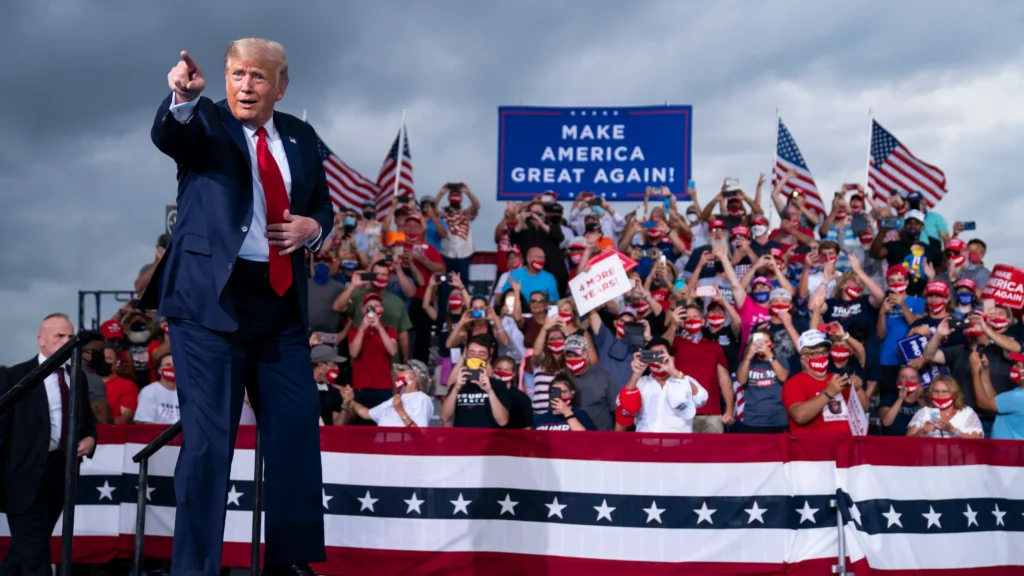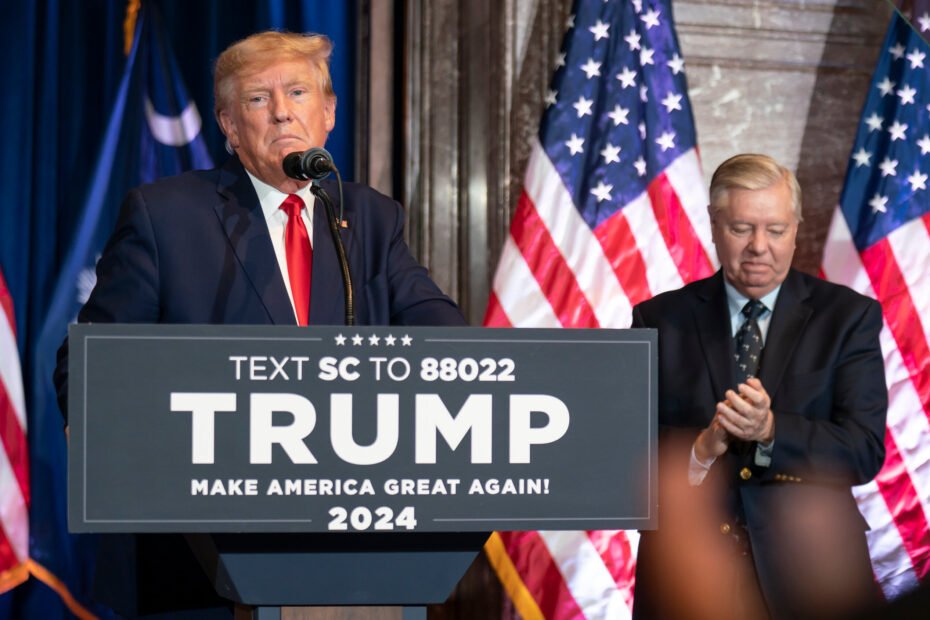the dynamic landscape of the Republican race for the 2024 presidential nomination, the focus has shifted to the battle for second place as the leading contender, Donald Trump, maintains a formidable base of supporters.
Jeff Zeleny, reporting extensively from Iowa, shed light on the interesting dynamics between the two candidates closely trailing Trump, Nikki Haley and Ron DeSantis. Despite Trump’s dominance, the competition for second place is gaining significance, as it involves voters who have moved on from Trump and seek a new face for the Republican Party.
Zeleny pointed out that Trump’s core base remains largely unswayed by traditional campaign strategies, making it challenging for competitors to directly influence those supporters. Instead, the focus is on attracting voters who have decided to explore alternatives like Nikki Haley or Ron DeSantis. The battle for second place, as highlighted by Zeleny, is characterized by intricate layers, making it a fascinating aspect of the Republican primary.
Nikki Haley and Ron DeSantis find themselves in a unique position, competing not against each other alone but also against the shadow of Trump, who seems to be running a race of his own. The report emphasized the urgency and significance of Iowa for DeSantis, who faces the challenge of a late start compared to Haley.

The discussion delved into the strategic messaging employed by Ron DeSantis, showcasing an ad with striking similarities to Trump’s rhetoric. DeSantis appears to be positioning himself as a candidate who aligns with Trump’s principles but offers a different leadership style, appealing to voters who appreciate Trump’s policies but may seek a change in leadership.
The news report highlighted the challenge faced by DeSantis, who, despite a disciplined campaign, finds himself in a less favorable position than anticipated at this stage. The report suggested that DeSantis had calculated that some Republican voters admire Trump’s policies but are open to a new leader, and he positioned himself accordingly. However, the effectiveness of this strategy remains uncertain.
The article shifted focus to internal polling, revealing the difficulty other candidates and groups face in finding arguments against Trump that resonate with his supporters. Club for Growth, an anti-Trump group, reportedly decided against challenging Trump due to the lack of a compelling argument. The report underscored Trump’s resilience and the challenges his opponents encounter in swaying his dedicated supporters.
As the discussion unfolded, the role of Washington Republicans came to the forefront. Despite reservations among some Republican leaders about Trump’s leadership, many Senate Republicans are endorsing him as the Iowa caucuses draw near. The delicate balance between loyalty to Trump and the pursuit of a Senate majority was emphasized, with Senate Republicans rallying behind Trump on the verge of potential endorsements.
The article then explored the brewing tension within Trump’s orbit regarding the potential vice-presidential pick. Reports of Trump mentioning Nikki Haley as a potential VP candidate were met with significant pushback from figures close to him, including Donald Trump Jr. and Steve Bannon. The pushback was highlighted through tweets and comments expressing opposition to Haley’s inclusion on the ticket.
The news report suggested that the pushback against Nikki Haley might be an attempt to diminish her standing as a serious presidential candidate. Despite successfully navigating the challenges of leaving the Trump administration, Haley faces opposition from those within Trump’s inner circle who believe she does not represent the core values of the MAGA wing of the party.
Steve Bannon’s comments on a podcast were included, emphasizing the potential fight within Trump’s orbit over the VP nomination. Bannon’s strong statement against Haley’s inclusion in the administration raised questions about the personal and strategic factors at play within Trump’s close circle.
In conclusion, the article highlighted the complexity of the Republican primary race, with Trump leading a race of his own, while candidates like Nikki Haley and Ron DeSantis navigate the intricacies of appealing to Trump’s base while positioning themselves as alternatives. The tension within Trump’s orbit regarding the VP pick added an intriguing layer to the evolving narrative of the 2024 Republican primaries.As the race intensifies, the role of Iowa and New Hampshire becomes crucial, with candidates vying not only for victory but also for strategic positioning in the contest for the soul of the Republican Party.
